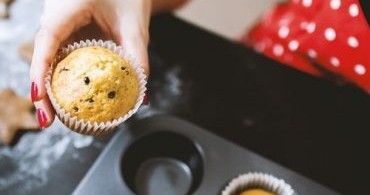High blood pressure is serious. It refers to the pressure of blood against artery walls. Hypertension can cause heart and kidney disease, stroke and other serious health problems.
Seventy-five million American have high blood pressure and a good percentage don’t realize it because it has no symptoms. Your age, family history, gender and race put you at risk, but so does your diet.
Eating to control blood pressure is fairly simple and doable. First, you need to cut out salt (sodium). Second, you need to eat a diet rich in potassium, magnesium, and fiber. Happily, you don’t need to cut out a lot of your favorites.
You just need to add the following foods to your diet. Most of them you will love!

Advertisements
10. Certain Fruits

Fruits that are high in potassium, magnesium, and fiber are readily available. Enjoy apples, apricots, bananas, dates, grapes and raisins, mangoes, melons, oranges, peaches, pineapples, pomegranates, and tangerines. With such a variety, you won’t get bored! Make sure you eat the real thing. You need the fiber, not the sugar in fruit juice.
The exception is unsweetened pomegranate juice. One cup a day for four weeks lowers blood pressure for the short term. Fruit makes a nice to-go snack.
9. Berries

Berries are rich in flavonoids. It appears that flavonoids may lower blood pressure. Eat them raw or frozen for best effect. According to studies, one cup a week will yield results. Blueberries and strawberries seem to have the best results.
Obviously, don’t sprinkle on sugar or douse them in cream. Instead, enjoy them on low fat yogurt or on cereal, or even by the berry.
8. Certain Vegetables

Leafy greens are at the top. Not only are they rich in potassium but in other excellent nutrients. Select romaine lettuce, arugula, kale, turnip/collard/beet greens, spinach, and Swiss chard. Eat them raw or steamed and don’t cook your greens with fatback!
If leafy greens aren’t your thing, try broccoli, carrots, green beans and peas, lima beans, potatoes, squash, sweet potatoes, and tomatoes. Cheese, dressing and butter won’t help you avoid heart issues, so go naked and hold the salt.
7. Oily fish with Omega-3s

Omega-3 fatty acids are super healthy fats that your body needs to function properly. Omega-3s can lower blood pressure, reduce inflammation, and lower triglycerides. They also contain Vitamin D which also lowers blood pressure. Eat salmon, trout, mackerel, and tuna. Bake it, don’t fry it and watch the tarter sauce and mayo.
Flax seeds, chia seeds and walnuts are non-fishy sources of Omega-3. Nuts are high in calories, so don’t eat too many. More about nuts and seeds next.
6. Seeds and Nuts

Snack on ¼ cup of unsalted seeds like sunflower, pumpkin or other squash seeds. They are full of minerals with proven blood pressure lowering capabilities. Make sure they are unsalted. You need to cut back on your salt intake to support your new diet.
Pistachio nuts are the best nut to eat to lower your blood pressure. One serving a day reduces blood pressure!
Advertisements
Almonds, walnuts, hazelnuts, macadamias, and pecans are also good sources. Eat a serving, not a jar!
5. Oatmeal

Try oatmeal for breakfast or an energizing snack. Oatmeal offers high-fiber, low fat and low sodium, so what you need to help lower your blood pressure. Just avoid the butter and sugary toppings. Instead, add fruits and nuts.
As a side benefit, oatmeal help control blood sugar spikes so you won’t get as hungry is you are also trying to lose weight.
Other breakfast or snack foods can help lower blood pressure and mix well with fruit and nuts.
4. Greek Yogurt

Greek yogurt offers twice the protein as regular yogurt. Get plain (less sugar) and top with blood pressure lowering fruits and nuts. Plus, it is a source of calcium, potassium and other blood pressure decreasing minerals. It is lower in lactose, so it may be easier on stomachs.
Studies suggest that women eating at least five servings of yogurt have a 20% lower risk for high blood pressure. a week experienced a 20 percent reduction in their risk for developing high blood pressure.
3. Olive Oil

If you need a healthy oil for sautéing or to use in salad dressings, opt for extra virgin olive oil. Substituting olive oil for all your oils may allow you to lower your blood pressure medication or stop it all together (talk to your doctor before stopping them though!). Studies recommend 4 tablespoons a day.
Olive oil contains polyphenols that are inflammation-fighting compounds. Heart disease appears to be related to chronic inflammation, so lowering it is beneficial to your entire cardiovascular system.
2. Dark Chocolate

Your anti-high blood pressure diet comes with a dessert! You can eat up to 100 grams a day of dark chocolate. However, it must be more than 60% cocoa solids! Milk chocolate doesn’t count.
Smaller amounts of dark chocolate are more satisfying than regular chocolate and contains less sugar. Nibble on it for snacks or combine with your favorite blood pressure lowering fruits and berries. Not many diets offer dessert, so enjoy. Just don’t overindulge!
1. Red Beets

Want to lower your blood pressure in 24 hours? Eat beets! And not because they’ll kill you… Beets contain nitric oxide that opens blood vessels. Juice them, cook them, or bake them as chips (using olive oil for extra benefit). Aussies love adding beets to meat and they make burgers juicy! Pickled beets are included in the healthy beet category!
If you can’t stand beets, there are other nitric oxide rich plants including celery, Chinese cabbage, leeks, spinach, and turnips.
Conclusion

Advertisements
Lowering your blood pressure can save your life. Make a few small changes to your diet and you may reap huge rewards. Remember that your first, most important step is to quit eating salt. Salt hides in all canned and packaged foods, so start reading labels!
High blood pressure is a silent killer. There are no symptoms. The test is simple and relatively painless, so make sure you have your blood pressure checked fairly regularly.
In general, adults should have a blood pressure between 120/80 and 140/90. Stress, medications, and caffeine can affect your blood pressure, so a one-time high reading is not critical. Elevated readings over time are.





Comments